BLOG - Page 3
Recently created mixtures:

Sea-Buckthorn Macerated oil
February 7, 2019

Home made air freshener
June 29, 2016

Homemade Dog-rose distillate
June 28, 2016

Homemade jasmine distillate
June 22, 2016

Moxibustion treatment with Moxa stick
May 30, 2016

Face and body gentle oil cleanser
May 26, 2016
BLOG / LATEST ADDITIONS!
Hyssop Decumbens Essential Oil (Hyssopus Officinalis var. Decumbens) ☸ Essential oils ☸ Medicine / Health
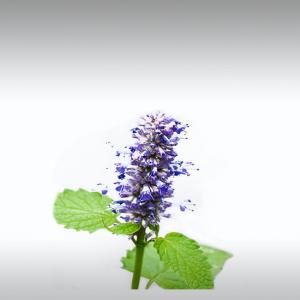
 The Decumbens variety of Hyssop is a powerful antiviral agent – effective for cold sores and most respiratory conditions – yet it is one of the mildest, best tolerated essential oils in aromatherapy. In fact, one of the most important features of this specific oil is its complete lack of toxicity and the absence of any irritant qualities.
The Decumbens variety of Hyssop is a powerful antiviral agent – effective for cold sores and most respiratory conditions – yet it is one of the mildest, best tolerated essential oils in aromatherapy. In fact, one of the most important features of this specific oil is its complete lack of toxicity and the absence of any irritant qualities. Submitted by OperaDreamhouse (June 15, 2023)
Iris Essential Oil (Iris Pallida) ☸ Essential oils ☸ Base / General
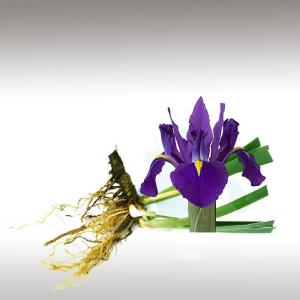
 Botanical Name: Iris Pallida
Botanical Name: Iris PallidaCommon Method of Extraction: Steam distillation
Part Typically Used: Roots
Color: Pale yellow to yellowish-brown
Consistency: Thick
Perfumery Note: Middle or Heart
Strength of Initial Aroma: Floral, powdery, and slightly earthy
Self life: 3 - 5 years
Iris essential oil is derived from the plant Iris pallida, also known as Sweet Iris or Orris. The essential oil is extracted from the rhizomes, or underground stems, of the iris plant. The rhizomes are harvested, dried, and then processed to obtain the precious essential oil.
Iris essential oil has a complex and captivating aroma, often described as floral, powdery, and slightly earthy. It possesses a unique blend of sweet and fresh floral notes with a subtle hint of rootiness. The initial aroma can be intense and captivating, making it a sought-after ingredient in perfumery.
Essential oil middle notes, also known as heart notes, in perfumery are the aromatic components that become noticeable once the top notes have evaporated. They form the body and character of a fragrance and help in transitioning from the initial impression to the lasting base notes.
A soothing, harmonizing oil with a very refined fragrance that promotes a sense of well-being, is inspiring, relaxing, and balancing for mind and emotions, and nourishes and cleanses the skin.
Submitted by OperaDreamhouse (June 15, 2023)
Iris Rhizome Absolute (Iris Pallida) ☸ Essential oils ☸ Base / General
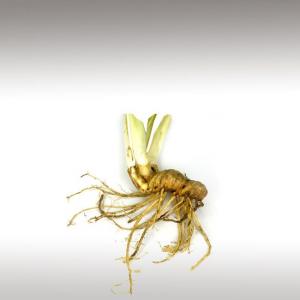
 Botanical Name: Iris Pallida
Botanical Name: Iris PallidaCommon Method of Extraction: Solvent extraction
Part Typically Used: Root
Color: Dark brown or reddish-brown
Consistency: Thick
Perfumery Note: Middle or Heart
Strength of Initial Aroma: Rich, floral, powerful and long lasting powdery note, sweet woody berry raspberry earthy sandy powdery fatty
Self life: 5 - 7 years
Iris rhizome absolute, derived from Iris Pallida, has a thick and viscous consistency. The absolute is known for its rich and sticky texture, often resembling a dense and syrupy resin. The viscosity of Iris rhizome absolute is due to the high concentration of aromatic compounds extracted from the rhizomes of the iris plant. Its thick consistency makes it valuable in perfumery and cosmetic formulations, as it provides a lasting and substantive base note.
In the production of Iris rhizome absolute from Iris Pallida, the primary part of the plant used is the rhizome itself. The rhizome refers to the underground stem of the iris plant, which is commonly referred to as the "Orris root."
The rhizomes of Iris Pallida are harvested and processed to extract the aromatic compounds through solvent extraction. The absolute is obtained by using solvents to dissolve the essential oil components of the rhizome, resulting in a highly concentrated aromatic extract.
Iris Pallida are highly valued for their fragrance and are known for their unique and powdery scent. They are extensively used in the perfume industry as a base note and fixative due to their long-lasting and complex aroma.
Submitted by OperaDreamhouse (June 15, 2023)
Citron juice essential oil (Citrus medica) ☸ Essential oils ☸ Base / General
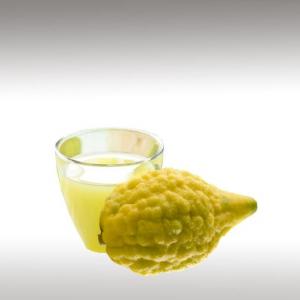
 Citron is actually one of the original 4 citrus fruits – the others being pomelo, papeda, and mandarin. This large citrus fruit can have a bumpy exterior and is often colored like a lemon.
Citron is actually one of the original 4 citrus fruits – the others being pomelo, papeda, and mandarin. This large citrus fruit can have a bumpy exterior and is often colored like a lemon.The shape can vary widely, depending on the cultivar, and other factors like climate and even twig arrangement. Unlike most citrus fruits, e.g. lemons and oranges, there is a very small amount of juice in a citron, because most of the inner pulp is dry. The white rind, however, is what most people seek out for culinary uses, and due to its rich nutrient composition.
A straight fruit juice which has a sour taste and yuzu-specific aroma.
Citron, also known as Citrus medica, is a fragrant but inedible citrus fruit. The citron fruit is usually oblong and covered with a leathery adherent rind. It differs from the rest of the citrus species, such as oranges or lemons, by having a dry pulp that contains just a small levels of juice.
For many centuries, citron is used for medical purposes (against pulmonary and gastric-intestinal disorders), and for production of the essential oil, which not only smells nice but also possesses antibiotic properties.
The essential oil is obtained from the cold pressing of of the whole fruit. Its scent is sweet, floral, citrusy.
Submitted by OperaDreamhouse (June 6, 2023)
Elder flower Essential Oil CO2 (Sambucus Nigra Flos.) ☸ Essential oils ☸ Base / General
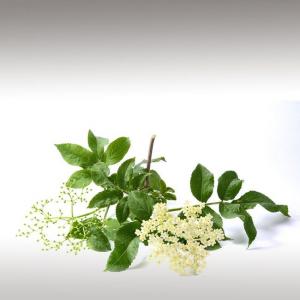
 Botanical Name: Sambucus Nigra
Botanical Name: Sambucus NigraCommon Method of Extraction: CO2 Select Extraction
Part Typically Used: Flowers
Color: Pale yellow
Consistency: Thin
Perfumery Note: Middle
Strength of Initial Aroma: Cool, Exotic, Floral, Fresh, Slightly sweet, Soft
Self life: 8 years
Elder Flower essential oil CO2 select extract has a honeyed syrupy fragrance with slight anise like tendencies. It is pure Elder Flower in a bottle and a delight.
More closely alike to the blossoms of this fine shrub with grassy, lemony, and warm, accords. This is an elusive, hard to find and understated extract that is quite rightly highly prized and much sought after and relished when found. Used almost exclusively in perfume manufacture.
Submitted by OperaDreamhouse (June 6, 2023)
Galbanum CO2 extract ( Ferula Galbaniflua, Ferula Rubricaulis) ☸ Essential oils ☸ Base / General
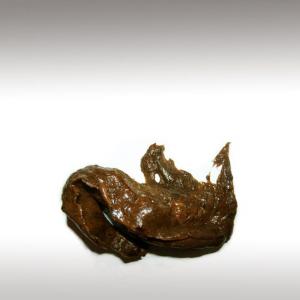
 Botanical Name: Ferula galbaniflua
Botanical Name: Ferula galbanifluaCommon Method of Extraction: CO2 Extracted
Part Typically Used: Resin
Color: Clear yellow
Consistency: Thin
Perfumery Note: Top
Strength of Initial Aroma: Fresh, spicy, balsamic, woody
Besides its highly valuable therapeutic properties the CO2 extract from the gum resin of Ferula has an intensely green scent with underlying musky notes. Galbanum is really a fascinating oil to work with, both for the aromatherapist and the perfumer.
Galbanum is an ancient aromatic substance. The author of Exodus named it as a component of incense to use in the temple. It was used by the Romans in ritual anointings for springtime.
Submitted by OperaDreamhouse (June 6, 2023)
Grapefruit Ruby Red Essential Oil (Citrus Paradisi Macfad.) ☸ Essential oils ☸ Base / General
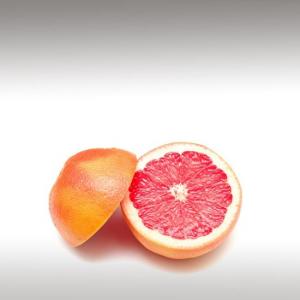
 Botanical Name: Citrus paradisi
Botanical Name: Citrus paradisiCommon Method of Extraction: Cold pressed
Part Typically Used: Peel
Color: Yellow to orange-red
Consistency: Transparent, mobile liquid
Perfumery Note: Top
Strength of Initial Aroma: Exceptionally fresh, light, citrusy, sweet, slightly bitter aroma with a rather pithy note in the drydown; somewhat similar to that of Bitter Orange and slightly sweeter than White Grapefruit oil.
Self life: 3 years
Relatively new to the citrus family, Grapefruit (Citrus paradisi) is a hybrid of Pomelo (Citrus maxima) and Sweet Orange (Citrus x sinensis) – a modern creation of only the last few hundred years. Cold pressed citrus peel essential oils are not byproducts of the juice industry, although the fruits used in the extraction of this product are used for both essential oil and juice.
Grapefruit oils, like all citrus peel oils, have a predominance of limonene, the bright, lemony monoterpene that provides an absolutely delightful aroma when diffused to refresh room environments.
Submitted by OperaDreamhouse (June 6, 2023)
Gingergrass Essential Oil (Cymbopogon Martinii var. Sofia) ☸ Essential oils ☸ Base / General

 Botanical Name: Cymbopogon Martinii
Botanical Name: Cymbopogon MartiniiCommon Method of Extraction: Steam or Hydro Distillation
Part Typically Used: Grass
Color: Yellow to light brown liquid
Consistency: Thin
Perfumery Note: Middle
Strength of Initial Aroma: Exotic and Sensual, sweet, fresh, citrus, lemony, fruity
Self life: 4 - 6 years
Gingergrass essential oil, India though a close relative of palmarosa has a unique chemistry and subsequently unmatched aroma. The oily grassy notes are due to the interesting Perilla alcohol that also adds a fatty-herbal kick. A synonym for Perilla alcohol is dihydro cuminyl alcohol. Fresh rosy notes with a slight woodiness are perhaps the reason Indian soap makers have used this oil extensively for decades.
Submitted by OperaDreamhouse (June 6, 2023)
Geranium Rose Essential Oil (Pelargonium x Asperum Ehrh. Ex Wilde) ☸ Essential oils ☸ Base / General

 Botanical Name: Pelargonium x Asperum
Botanical Name: Pelargonium x AsperumCommon Method of Extraction: Steam distillation
Part Typically Used: Plant
Color: Light yellow to greenish-color
Consistency: Thin
Perfumery Note: Middle
Strength of Initial Aroma: Sweet, fresh, herbaceous, with green or minty nuances and a prominent, long lasting rosy-floral note. Floral, somewhat rosy and green.
Self life: 2 - 3 years
Rose Geranium essential oil production has scaled down dramatically in recent times and the Bourbon chemotype Rose Geranium cultivar is more commonly sourced from Madagascar. Geranium and Rose Geranium essential oil production now centres predominantly around Upper Egypt, the Yunnan province of China and to a lesser extent in the Western Cape and surrounding provinces of South Africa, Morocco and India.
Rose Geranium essential oil is an active ingredient in some cosmetic products like lotions and fragrances.
This is the cultivar that is favoured in perfumery and is utilised in many masculine or unisex fragrances to give a greener or more herbal aspect to any rose notes in a fragrance.
Submitted by OperaDreamhouse (June 6, 2023)
Canada Goldenrod Essential Oil (Solidago Canadensis) ☸ Essential oils ☸ Spiritual Practises

 According to aromatherapy practitioners and some alternative medicine practitioners, Canada Goldenrod essential oil is believed to have properties such as promoting emotional balance and well-being, enhancing intuition and creativity, and increasing spiritual awareness. It is also believed to have grounding and calming effects on the mind and body.
According to aromatherapy practitioners and some alternative medicine practitioners, Canada Goldenrod essential oil is believed to have properties such as promoting emotional balance and well-being, enhancing intuition and creativity, and increasing spiritual awareness. It is also believed to have grounding and calming effects on the mind and body.Submitted by OperaDreamhouse (April 12, 2023)
Cape Gold Essential Oil (Helichrysum Splendidum) ☸ Essential oils ☸ Spiritual Practises
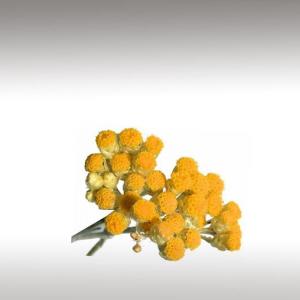
 Some people may incorporate Cape Gold essential oil into their spiritual practices, such as meditation, yoga, or prayer, to help enhance their spiritual experience. It may also be used as a natural perfume or as an aid in spiritual rituals or ceremonies.
Some people may incorporate Cape Gold essential oil into their spiritual practices, such as meditation, yoga, or prayer, to help enhance their spiritual experience. It may also be used as a natural perfume or as an aid in spiritual rituals or ceremonies.According to aromatherapy practitioners and some alternative medicine practitioners, Cape Gold essential oil is believed to have properties such as promoting emotional balance and well-being, enhancing spiritual growth and intuition, and encouraging creativity and abundance. It is also believed to have cleansing and purifying effects on the mind and body.
Submitted by OperaDreamhouse (April 12, 2023)
Cape May Essential Oil (Coleonema Album) ☸ Essential oils ☸ Spiritual Practises
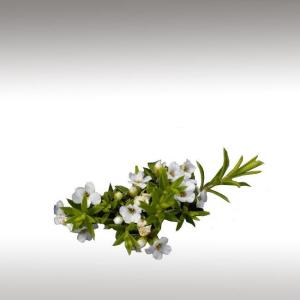
 Cape May essential oil is believed to have properties such as promoting emotional balance and well-being, enhancing spiritual growth and intuition, and helping to clear negative energy and promote positive energy flow. It is also believed to have grounding and calming effects on the mind and body.
Cape May essential oil is believed to have properties such as promoting emotional balance and well-being, enhancing spiritual growth and intuition, and helping to clear negative energy and promote positive energy flow. It is also believed to have grounding and calming effects on the mind and body.Submitted by OperaDreamhouse (April 12, 2023)
Cape Snow Bush Essential Oil (Eriocephalus Africanus) ☸ Essential oils ☸ Spiritual Practises
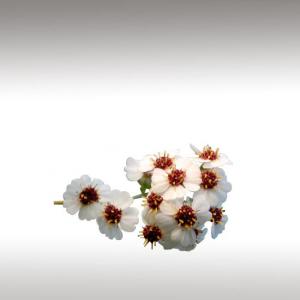
 Cape Snow Bush essential oil is believed to have properties such as promoting emotional balance and well-being, enhancing spiritual growth and intuition, and promoting clarity and focus of the mind. It is also believed to have grounding and calming effects on the mind and body. It may also be used as a natural perfume or as an aid in spiritual rituals or ceremonies.
Cape Snow Bush essential oil is believed to have properties such as promoting emotional balance and well-being, enhancing spiritual growth and intuition, and promoting clarity and focus of the mind. It is also believed to have grounding and calming effects on the mind and body. It may also be used as a natural perfume or as an aid in spiritual rituals or ceremonies.Submitted by OperaDreamhouse (April 12, 2023)
Damask Rose Essential Oil (Rosa Damascena) ☸ Essential oils ☸ Spiritual Practises

 Damask Rose essential oil (Rosa damascena) is one of the most highly valued and sought-after essential oils in aromatherapy due to its fragrance, therapeutic properties, and historical significance.
Damask Rose essential oil (Rosa damascena) is one of the most highly valued and sought-after essential oils in aromatherapy due to its fragrance, therapeutic properties, and historical significance.Damask Rose essential oil is believed to have properties such as promoting emotional balance and well-being, enhancing spiritual growth and intuition, and helping to open the heart chakra to promote self-love, compassion, and connection to others. It is also believed to have a soothing and calming effect on the mind and body, which may help to reduce stress and anxiety.
Submitted by OperaDreamhouse (April 12, 2023)
Cypriol (Nagarmotha) Essential Oil (Cyperus Scariosus) ☸ Essential oils ☸ Spiritual Practises
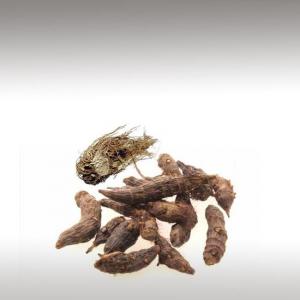
 Cypriol essential oil is believed to have properties such as promoting emotional balance and well-being, enhancing spiritual growth and intuition, and helping to release negative emotions and promote inner peace. It is also believed to have a grounding and calming effect on the mind and body.
Cypriol essential oil is believed to have properties such as promoting emotional balance and well-being, enhancing spiritual growth and intuition, and helping to release negative emotions and promote inner peace. It is also believed to have a grounding and calming effect on the mind and body.Emotionally and energetically, Cypriol oil encourages emotional healing, support reflection, and introspection, and bring peace and calm, especially during meditation. It also has a calming and soothung effect that helps reduce nervousness and relieves anxiety and depression. Nagarmotha essential oil also helps promote restful sleep.
Submitted by OperaDreamhouse (April 12, 2023)
Page 3 of 48

